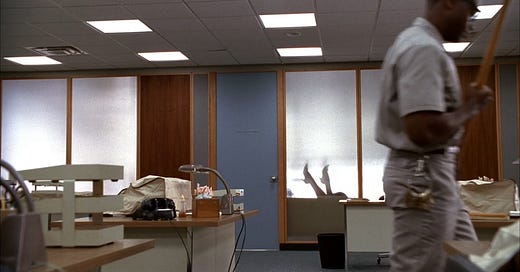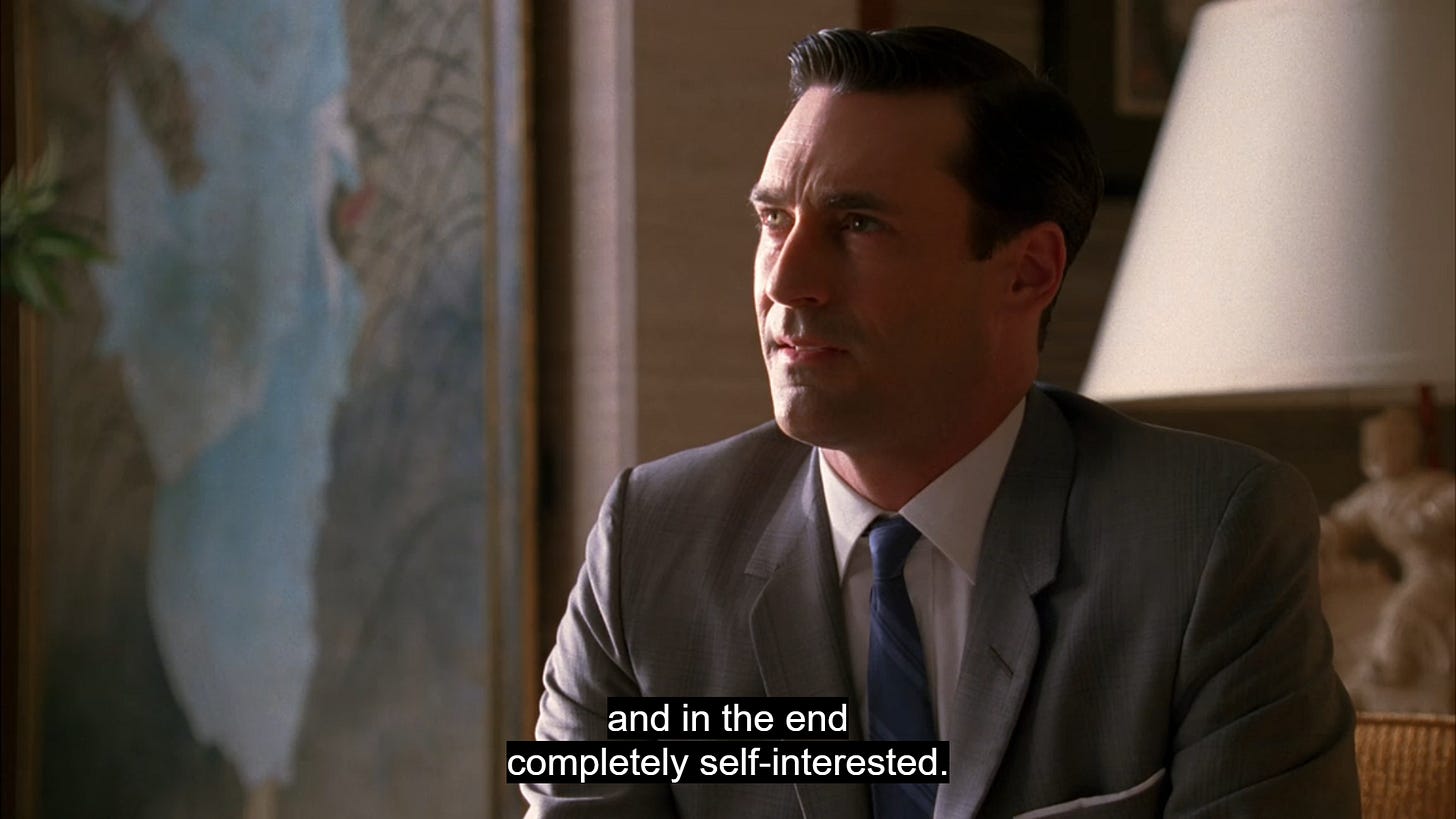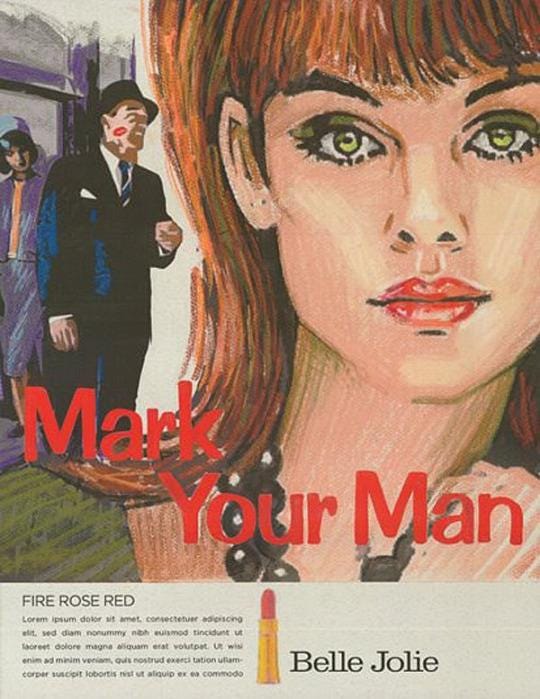Season 1: Episode 8
“The Hobo Code”
Directed by Phil Abraham
Written by Chris Provenzano
Setting: June 1960
One of the great challenges of the first season is that it has to reckon with Don’s past and present. We go from the 1960s to the 1930s and the condemnation of the worst ideals that defined both decades is just as clear in either time.
There is one ideal that both decades shared, no matter how much a man had in his pocket - every man for himself.
“The Hobo Code” gives us our first in-depth look at the childhood of Dick Whitman with a good deal of the episode showing flashbacks to the Whitman family farm. Dishonesty leads to more dishonesty no matter the time period but that flaw shows in different ways through different men.
Don’s father refuses to give a hobo the money he was promised for a day’s labor. As an adult, Don has more money than he knows what to do with and he gives his latest bonus to Midge on a whim. His dishonesty takes a different form through lies to his family. When Don is awake at night with only his memories to keep him company, he thinks of how he does not want to be his father. He does not dwell on how he wants to improve his own flaws, only the flaws of others.
He thinks about how he does not want to be a Whitman.
For Don, being Don Draper wasn’t just about getting a fresh start. The Whitman name is tainted in his eyes and that is why it had to die.
This is a… “normal” episode after a couple of heaters that broke the mold. We’re back to having steamy affairs in the office and all the bad behavior we associate with Mad Men.
Pete and Peggy open the episode by shacking up in his office after he set the mood with his manly hunter roleplay in the previous episode. You can actually see Pete’s department store gun in the room’s corner while they make love. I guess a chip-n-dip plate would have killed the mood.
To really understand this episode you *sigh* must understand Ayn Rand.
I actually prepared myself to write this episode recap by doing the dumbest thing possible. I brought up Rand to someone I know who is a fan of her work.
He asked me condescendingly if I had ever read Atlas Shrugged and then said “Of course you haven’t” before I could answer.
He has read it four times.
For those that don’t know, Atlas Shrugged is the most famous work of writer Ayn Rand who was quite popular among capitalists like Bert Cooper then and now. She preached rational egoism in which man is focused on his own prosperity over assisting the well-being of others. There is an intense irony to this after Cooper gives Don a bonus for a job that he routinely sleeps during and leaves to go cheat on his wife. Though you have to hand it to Don, he gives a great pitch in this episode when he compares selling lipstick to preaching Jesus.
Anyway, Cooper tells Don to take $1.99 out of that bonus check and spend it on a copy of Atlas Shrugged.
The check is then given entirely to Midge, Don originally wanted to spend it on an extravagant trip to Paris (I would have loved to hear whatever lie Don was going to come up with for Betty there).
The Rand expert I know told me that everyone who criticizes Rand misunderstands her. He then went on to clarify that The Simpsons’ joke in which Maggie goes to the strict and lifeless Ayn Rand School for Tots is completely wrong.
This may make me sound like a total Homer Simpson but here we go… I’m not going to read Atlas Shrugged because I really just do not care.
I get the gist but if that book really is about making yourself better through self-focus then I’m just going to go to work instead of reading it and then spend my free time with loved ones who make life worth living. Don devours the book Exodus not because it is good but because he has such strong feelings for Rachel Menken and he was looking for a way to talk to her again, perhaps to even understand her better.
You can bet your ass that if Rachel Menken had recommended Atlas Shrugged then he would have been in bed that night reading that entire thing and saying “Birdie, the industry of man’s own mind… is really interesting.”
As Don says “there is no big lie.” He doesn’t believe in anything because any belief system can have holes poked in it. He goes through life as a hobo, his only code is left for her by the survivors that came before.
Bert Cooper thinks Don is like him but they have very little in common besides a fat wallet. Don is most like the homeless traveler who visits his home as a boy.
Pete, who still wants to be like Don as evidenced by his office affair, doesn’t understand that to be like Don you have to have a troubled past. His struggles are not Draper’s even though he believes that they desire the same things such as a good career and women whenever they want them.
In this episode, Pete is a dishonest man who would be marked so by the hobo code.
Peggy would be just as quickly discarded by a man who has experience in life as she would be by a man who does not. Pete didn’t even read the copy for Belle Jolie she prepared and she still slept with him! He is a man doing the absolute minimum.
Peggy and Don don’t get much time to interact but when they do this inexperienced Peggy begins to die and the fiery copywriter we come to love is born. She shares a drink with the big shots and then the office celebrates her by going out for the evening to dance. These are things that Pete cannot give her. He is a dishonest man and now this has been marked for her to see.
The writers take great joy in establishing Peggy as an already important and rising member of Sterling Cooper. She and Don share equal focus as one looks to the future and the other to the past.
The supporting storyline of this episode is Salvatore Ramano’s love life. All those unsubtle zingers have been building to what is probably the most deeply sad scene of the show thus far. A lady admirer of Sal’s in the operator room listens in on his Italian phone calls and is immediately smitten. She flirts with him throughout the episode but he is not at Peggy’s celebration party. He instead picked up on a hint from one of the men at Belle Jolie and met him at a hotel bar.
The man has clearly dealt with closeted men like Salvatore before and Sal lives in constant fear of what even one night with any man (especially one he is connected to through work) could mean. I think that had Mad Men been produced a decade later, it would have given more attention to its gay characters and resolved their storylines much more clearly. As is, this is a groundbreaking series from 2007 that decided to include a gay character in the 1960s as one of its major plotlines. You have to realize just how rapidly the gay rights movement gained support in the United States over the next decade.
Sadly, the gay storylines on Mad Men often end with a title card reading “Poochie died on the way back to his home planet” rather than with a satisfying conclusion.
Everyone in The Hobo Code is learning to pick up on signs.
Dick Whitman sees the sign that his father is a dishonest man just as clearly as he sees that Midge and her new lover have developed feelings for each other.
Sal sees the sign that another man wants him but he cannot do anything about it even though he clearly wants to.
Peggy sees the sign that Pete has a ring on his finger and while that means nothing to him, he has still been marked as something that he claims to her he isn’t.
Pete claims that he belongs to Peggy. He is a dishonest man.
Mark your man.
Best of luck to you on your next copy, Ms. Olsen.















